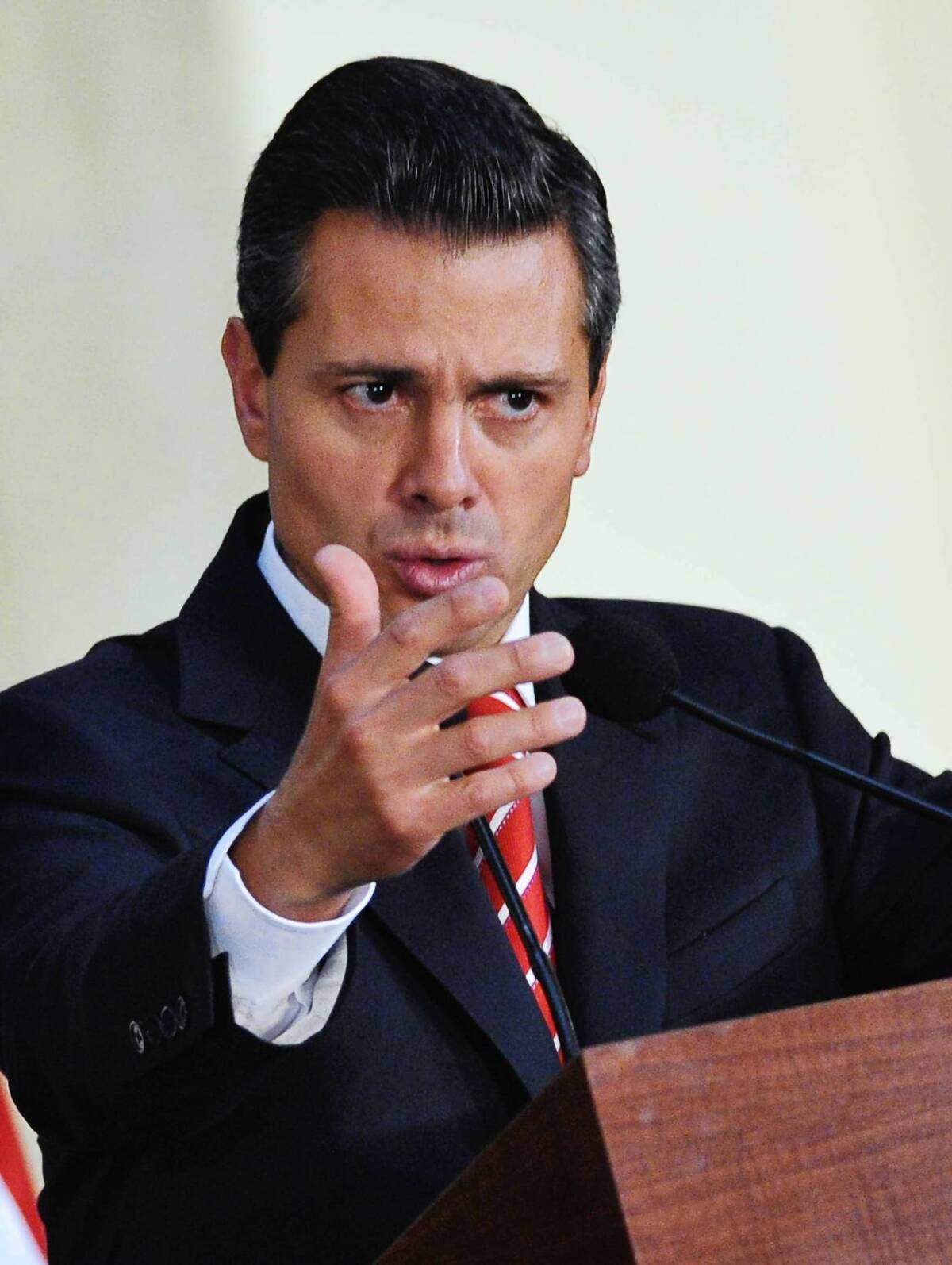Mexico names public security chief for Michoacan state

- Share via
MEXICO CITY — Responding to mounting concern about disorder in the Mexican state of Michoacan, officials announced Thursday that an army general would take over as its public security chief, overseeing both state and federal security forces.
The appointment of the general, Alberto Reyes Vaca, was announced by state officials but had been arranged in coordination with the federal government.
For President Enrique Peña Nieto’s administration, the move is part of a promised new focus on the southwestern state, long a hotbed of drug cartel violence. It has been the scene of massacres, paralyzing labor strikes and clashes between new citizen vigilante groups and local officials.
Reyes, a career army officer, is a native of Michoacan who has, among other things, served as commander of a special forces battalion. His predecessor, Leopoldo Hernandez, had held the job for two months.
Interior Minister Miguel Angel Osorio Chong said Wednesday in a preview of the appointment that the public security chief would have the power to control and coordinate state and federal police, as well as federal troops deployed in Michoacan.
“There will be no public security secretary in any part of the republic who will have as much power as he has,” Osorio Chong said in a radio interview.
Peña Nieto’s team has been trying to steer attention away from Mexican security issues while emphasizing the country’s economic potential. Although violence remains a serious concern in many states, Michoacan, along with neighboring Guerrero, has been generating headlines that are particularly difficult to ignore.
In swaths of both states, dozens of “self-defense” groups, usually made up of armed masked men, have emerged, purporting to protect their rural communities from the drug cartels. But recent experiences in the troubled municipality of Buenavista Tomatlan demonstrate how complicated, murky and dangerous the situation has become in parts of Michoacan.
A Buenavista Tomatlan vigilante group formed in February and soon after detained a local police chief and a number of officers, accusing them of criminal connections. The army, in turn, arrested 35 members of the vigilante group in March, alleging they were members of a drug cartel.
This month, a reporter for the newspaper Milenio traveled to La Ruana, a city of 10,000 in the municipality, and found food, gas and medicine shortages, boarded up shops and a population terrified by the presence of a cartel called the Knights Templar. Residents complained that the cartel had stifled commerce in an effort to control the area. A month earlier, in nearby Apatzingan, armed men killed 10 lime pickers. The residents said the government was doing little to help.
On Wednesday night, according to federal prosecutors, federal troops detained 12 members of a self-defense group near the city of Uruapan, confiscating a number semiautomatic rifles.
Some grocery suppliers, including the Bimbo bread company, have said there are regions where the cartels have made it impossible to deliver food. At the same time, angry education students protesting a recently approved federal education reform have reportedly been detaining police officers and stealing trucks and buses, using them to block roads.
The governor of Michoacan, Fausto Vallejo, is a member of Peña Nieto’s Institutional Revolutionary Party. He has been ill for a number of weeks, and the state is being run by an interim governor.
This week, senators of the opposition National Action Party, concerned about the chaos in the state, began working on a proposal that would allow the Senate to replace Vallejo with a provisional governor, who would then call a new election.
Sanchez is a news assistant in The Times’ Mexico City bureau.
More to Read
Sign up for Essential California
The most important California stories and recommendations in your inbox every morning.
You may occasionally receive promotional content from the Los Angeles Times.










